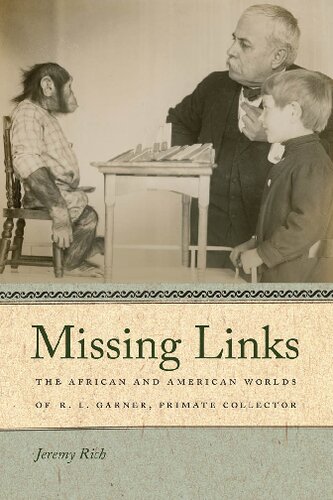

Most ebook files are in PDF format, so you can easily read them using various software such as Foxit Reader or directly on the Google Chrome browser.
Some ebook files are released by publishers in other formats such as .awz, .mobi, .epub, .fb2, etc. You may need to install specific software to read these formats on mobile/PC, such as Calibre.
Please read the tutorial at this link: https://ebookbell.com/faq
We offer FREE conversion to the popular formats you request; however, this may take some time. Therefore, right after payment, please email us, and we will try to provide the service as quickly as possible.
For some exceptional file formats or broken links (if any), please refrain from opening any disputes. Instead, email us first, and we will try to assist within a maximum of 6 hours.
EbookBell Team

4.8
54 reviewsJeremy Rich uses the eccentric life of R. L. Garner (1848–1920) to examine the commercial networks that brought the first apes to America during the Progressive Era, a critical time in the development of ideas about African wildlife, race, and evolution.
Garner was a self-taught zoologist and atheist from southwest Virginia. Starting in 1892, he lived on and off in the French colony of Gabon, studying primates and trying to engage U.S. academics with his theories. Most prominently, Garner claimed that he could teach apes to speak human languages and that he could speak the languages of primates. Garner brought some of the first live primates to America, launching a traveling demonstration in which he claimed to communicate with a chimpanzee named Susie. He was often mocked by the increasingly professionalized scientific community, who were wary of his colorful escapades, such as his ill-fated plan to make a New York City socialite the queen of southern Gabon, and his efforts to convince Thomas Edison to finance him in Africa.
Yet Garner did influence evolutionary debates, and as with many of his era, race dominated his thinking. Garner’s arguments―for example, that chimpanzees were more loving than Africans, or that colonialism constituted a threat to the separation of the races―offer a fascinating perspective on the thinking and attitudes of his times. Missing Links explores the impact of colonialism on Africans, the complicated politics of buying and selling primates, and the popularization of biological racism.